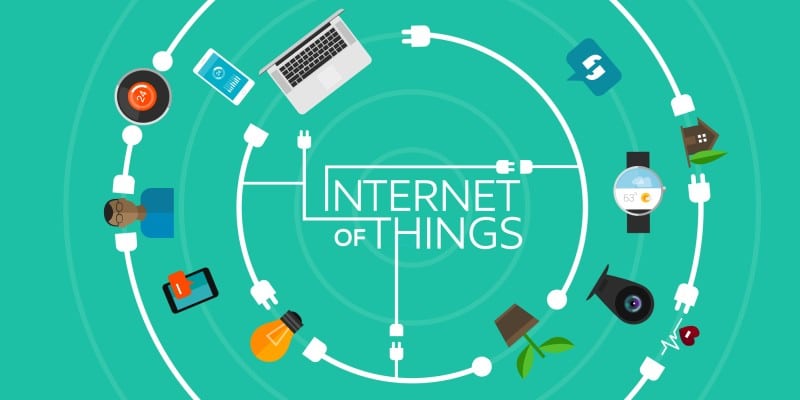The concept of Internet of Things (IoT) is rapidly gaining traction and becoming increasingly important for professionals to comprehend. Many individuals are unaware of what IoT truly entails, including IoT platforms and how they can be leveraged to enhance business strategies. So, what exactly is the Internet of Things?
The Internet of Things refers to an ecosystem of interconnected hardware devices that can be accessed easily through the internet. These “things” can range from individuals wearing smartwatches to machines equipped with built-in sensors. Essentially, IoT encompasses interconnected computing devices that can collect and transmit data across a network without requiring manual intervention. The technology embedded in these devices enables interaction with internal states or the external environment, influencing the decisions made. Let’s delve into how IoT works.
An IoT system comprises four key components: sensors/devices, connectivity, data processing, and a user interface.
- Sensors: These devices collect data from the surrounding environment and transmit it to the cloud.
- Connectivity: All devices need to be connected to the cloud, utilizing methods such as Wi-Fi, Bluetooth, internet, or Ethernet, depending on the specific application.
- Data Processing: Once the data reaches the cloud, software processes it and triggers actions, such as sending alerts or adjusting devices automatically, without requiring user intervention.
- User Interface: Users can access alerts and make adjustments through the user interface, which relays information between the cloud and the devices.
IoT platforms enable cloud-based applications and services. They act as middleware, connecting remote devices to user applications and managing interactions between the hardware and application layers. These platforms facilitate seamless connectivity, enterprise-grade security measures, and robust data processing capabilities, enabling standard devices to integrate with cloud-based applications and services.
As the number of smart and wearable devices continues to grow worldwide, IoT expands its reach. While its progress holds exciting promises and the potential to transform the world in various ways, concerns regarding security have also surfaced. To address these security challenges, another emerging technology, blockchain, can provide a solution.
Blockchain, a distributed ledger technology, has the potential to mitigate security risks. It enables direct transactions, recording them cryptographically to prevent alterations. Blockchain has permeated every industry, boasting countless applications. When applied to IoT, blockchain can address security breaches and vulnerabilities. With interconnected IoT devices being susceptible to hacks and cyberattacks, blockchain integration ensures secure data flow. By recording transactions in decentralized locations, blockchain offers heightened security and protection against tampering.
Furthermore, blockchain’s decentralized nature eliminates single points of failure, creating a more resilient ecosystem for IoT devices. It automates processes, reducing the need for intermediaries and associated costs. The cost-effectiveness and security of blockchain make it an ideal architecture for IoT, enhancing operational efficiency and enabling autonomous functioning of smart devices.
However, this is just the beginning. The Internet of Things is the medium for hyper-connectivity in the business world. It enables observation, evaluation, and automation that greatly improve processes and drive the creation of new business models. Having explored the need for blockchain in IoT, let’s now examine the benefits of IoT for organizations:
- Data-Driven Decisions: Abundant data facilitates informed decision-making, enabling organizations to understand component requirements and inventory levels without manual monitoring.
- Time and Cost Savings: IoT monitoring eliminates the need for unnecessary trips and human intervention, resulting in time and cost savings.
- Increased Business Opportunities: IoT creates new business prospects, allowing companies to capitalize on revenue streams generated by innovative business models and services. It fosters innovation, reduces time to market, and boosts return on investment (ROI).
- Enhanced Organizational Productivity: Productivity is crucial for business success, and IoT facilitates just-in-time training, enhances labor skills, and reduces skill mismatches, resulting in increased organizational productivity.
- Improved Customer Experience: Detailed consumer insights derived from IoT technologies enable informed decisions on target audiences, timing, and budget allocation. IoT replaces quantitative data with qualitative data, leading to a better understanding of customers throughout their buyer’s journey.
In conclusion, the Internet of Things (IoT) is an expanding concept with significant implications for businesses. By leveraging IoT, organizations can benefit from data-driven decision-making, time and cost savings, increased business opportunities, enhanced productivity, and improved customer experiences. As the world becomes increasingly interconnected, IoT presents opportunities for businesses to thrive in the digital age.











Leave a Reply